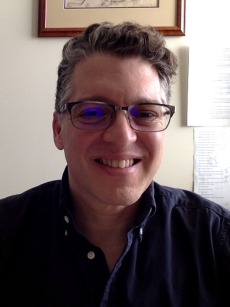Dr. Graizbord is the Shirley Curson Professor of Judaic Studies and Director of the UofA's Arizona Center for Judaic Studies. A historian of early modern and modern Jewish identities, Dr. Graizbord's research focuses mostly on the Western Sephardi Diaspora of the seventeenth century. In particular, Dr. Graizbord's writing approaches questions of religious, social, and political self-definition as these questions shaped the lives of so-called "New Christians" or "conversos" from the Iberian Peninsula who became Jews in exile. He has also written about Judeophobia and the culture of the Spanish and Portuguese Inquisitions; marginality and dissidence in Jewish and Ibero-Catholic societies of the seventeenth century; ethnicity and religion among Sephardim from medieval times to the 1700s; and converso trading networks in the Atlantic. More recently, Graizbord published The New Zionists: Young American Jews, Jewish National Identity, and Israel, which probes the place of Zionism in the lives of American-Jewish "Millennials." Graizbord's third book, Early Modern Jewish Civilization: Unity and Diversity in a Diasporic Society, is forthcoming from Routledge.
dlgraizb
Currently Teaching
RELI 370A – History of the Jews: Modern Jewish History
Survey of major political, socioeconomic, and cultural developments in the history of Diaspora Jewry: Modern Jewish history.
Survey of major political, socioeconomic, and cultural developments in the history of Diaspora Jewry: Modern Jewish history.
RELI 372A – Interpreting the Bible (Old Testament): Approaches to Understanding Israelite Religion and Society
The Hebrew Bible (Old Testament) is one of the most influential and widely studied texts in the world. For more than two millennia, it has played a central role in shaping Western culture, religion, and ethics. However, the stories, laws, and prophetic writings contained in the Bible are products of a specific time and place--embedded in the ancient Near East, where the Israelite people lived and interacted with other cultures over the course of many centuries. This course explores the contexts in which the Bible was written and compiled, drawing on literary analysis, historical criticism, and the witness of archaeology evidence. Students analyze key topics in Israelite religion and society, including the daily life of men and women, the emergence of monotheism, the role of the priesthood, development of the prophetic tradition, the political formation of the kingdoms of Israel and Judah among others.
The Hebrew Bible (Old Testament) is one of the most influential and widely studied texts in the world. For more than two millennia, it has played a central role in shaping Western culture, religion, and ethics. However, the stories, laws, and prophetic writings contained in the Bible are products of a specific time and place--embedded in the ancient Near East, where the Israelite people lived and interacted with other cultures over the course of many centuries. This course explores the contexts in which the Bible was written and compiled, drawing on literary analysis, historical criticism, and the witness of archaeology evidence. Students analyze key topics in Israelite religion and society, including the daily life of men and women, the emergence of monotheism, the role of the priesthood, development of the prophetic tradition, the political formation of the kingdoms of Israel and Judah among others.


